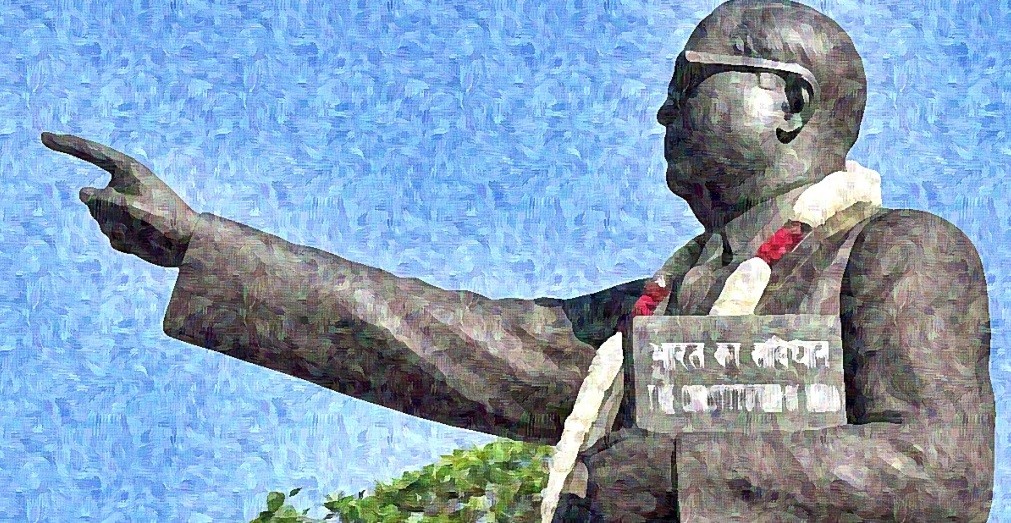
Dr. Babasaheb Ambedkar – An Example of Ethical Transformational Leader
Author – Mangesh Dahiwale
Leadership is often discussed in the Ambedkarite circles and lack of it is lamented as the failure of the movement. Leadership is often spoken in the area of politics, however, leadership as a transformation of society is not often discussed. Leadership, the science and art of it, must be understood. We see leadership in all the domains of life and we have an example of Dr. Babasaheb Ambedkar to understand the kind of leadership we can cultivate in our society in all walks of life.
We will study the leadership of Dr. Babasaheb Ambedkar within a framework of ethical standards which are listed below:
1. integrity
2. objectivity
3. accountability
4. honesty
5. openness
6. selflessness
7. leadership
1. Integrity
It can be defined very easily as a person’s total dedication to some goal or cause. This is very clearly seen in the life of Dr. Babasaheb Ambedkar. His entire life, his total being, his emotions, his intellect, and his will were devoted and dedicated to the singular goal of liberating humanity from the sufferings due to unjust and inhuman social structure. This integrity was so solid that Dr. Babasaheb Ambedkar was ever ready to suffer and struggle for this mission and he even did not care for his life or well-being to further the cause of suffering humanity.
2. Objectivity
Here objectivity must be understood as the reality and continuous efforts to understand everything around us as it is. This criteria for ethical leadership is important. For to transform something or some object, one must know it as much as one can. Remove this truth-seeking, the process of transformation becomes just the subjective and sentimental process and it does not provide aid to the actual process of transformation. Looking at the life of Dr. Babasaheb Ambedkar and his inquiry into domains of experiences and knowledge, one begins to see the objectivity as the inquiry into what it is standing before us. Transformational leaders are born out of this mind that seeks the truth.
3. Accountability
One must be accountable without which no transformation is possible. Whatever Dr. Babasaheb Ambedkar committed, he strove hard to deliver. Though above all he was in the movement, he held himself accountable. He was accountable to his people and his country. One of the dimensions of accountability is financial accountability and he gave an account of every single penny donated to him. He saw to it that his all commitments are met. To be accountable is a test of one’s quality of leadership.
4. Honesty
One thing that immediately put off Dr. Babasaheb Ambedkar was the company of dishonest people. He shunned dishonest people. Honesty is an important characteristic of great people. Dr. Babasaheb Ambedkar was so much taken by the intellectual dishonesty around him and valued Intellectual honesty as a virtue.
5. Openness
Dr. Babasaheb Ambedkar emphasized the value of learning, unlearning, and relearning. He reckoned that consistency is not a great virtue and one should be ready to let go of one’s position if found untenable or proven wrong. This openness needs a very flexible and alert mind. A fossilized mind can not be an open mind. The open mind has many possibilities, while the closed mind is remarkably inefficient to new ideas. Dr. Babasaheb Ambedkar had an attitude of ever learning and his learning was not confined to certain subjects.
6. Selflessness
If we make selfishness the centre of all our thinking, behavior, and communication, then that kind of being and leader cannot bring any transformation. Selflessness is a great virtue in itself. Dr. Babasaheb Ambedkar’s life is nothing but a life of selflessness.
7. Leadership
It is not just about practicing the virtues and qualities mentioned above, but one must lead. Dr. Babasaheb Ambedkar taught us that we must lead. It is not just enough for a leader to practice alone, but inspire others to do so. This approach is quintessential to ethical transformational leadership. More vivid examples can be brought from the field of Buddhism to show the kind of leadership which transforms society. All the five precepts remain incomplete if one only tries to practice in their own lives and not try to promote them as good social practices.
The first Buddhist precept is not just about non-harming, it also means cultivating love. This is not enough: one must also dissuade others from harming and persuade others to cultivate love. Even this is not enough, one must strive to create a culture of love for all. This is the ultimate level of leadership when one is motivated by compassion for all strives to and the suffering.
Dr. Babasaheb Ambedkar thus embodies for us a model of leadership of which lack we lament in the Ambedkarite movement. But that cultivating such leadership is nothing but the real way of life for humanity and as demonstrated by Dr. Babasaheb Ambedkar we can live as guided by him.




+ There are no comments
Add yours